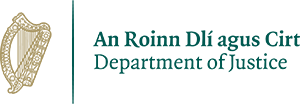If you live in the Republic of Ireland you must make an appointment to attend the public Registration Office in Burgh Quay, Dublin. You should register within 90 days. If you can’t get an appointment within that time, don’t worry, you won’t be asked to leave the country while waiting to register. After you book an appointment, we will send you an email telling you what documents to bring with you.
- We will review your documents
- We will take your photograph and fingerprints
- We will stamp your passport with the permission to stay you have been given
- You will pay the fee if it applies.
You may be required to pay a fee of €300 to register your immigration permission. The visit should take no longer than 30 minutes.
If you reside in the Republic of Ireland and you attended the Registration Office in Dublin to register for the first time or if you applied to renew your permission online, you will receive your IRP card within approximately 10-15 working days of being registered for the first time or having your online application processed.
No, from April 2021 your permission is not linked to the expiration date on your passport. When you receive a new passport, you are legally required to contact the Registration Office in Burgh Quay, Dublin to update your details. If you have a question about a balance of permission or you want to update your details please use our dedicated Customer Service Portal. You can register for an account or log in to your existing account.
No, you must be currently in the State.
You can extend or seek a change of permission online in some cases (for example, applying for Stamp 1G Graduate Scheme following completion of a Stamp 2 degree course), once you provide all necessary supporting documentation.
Applications for extension of Stamp 0, Stamp 4EUfam, Stamp 5 and Stamp 6 permissions need to be submitted directly to the relevant area in the Department. You can find details here.
You should apply within 30 days before your current permission expires. Once you receive a new permission letter you can then apply to register it and obtain a new IRP card online.
If you are renewing your immigration permission and you have a new passport, you do not need to attend in person to have your new passport stamped with your immigration permission. You can renew your immigration permission here.
No. Proof of holding a valid identity document is required for all online renewal applications. You should apply for online renewal only when you obtain a replacement passport.
When you apply for online renewal, you will receive an acknowledgement email with your Registration Office (OREG) application number. This can be used as proof of having submitted a request for renewal of your immigration permission to ISD. You should also be in possession of your previous IRP card. This confirms your immigration stamp permission and the validity date of same. If your card has expired, your acknowledgement email will serve as evidence that a renewal application has been made.
Airline carriers, ferries and other forms of international transport require valid passport for international travel. You must also produce a valid IRP card for airline carriers and Immigration authorities to verify a person’s current permission.
If you qualify for an IRP card you should use our dedicated Customer Service Portal explaining your circumstances and your urgent need to travel. You can register for an account or log in to your existing account.
You should submit proof of travel, for example your flight booking and the reason for the emergency.
You can find all the details at here.
If you lose your IRP card or if it is stolen, you should report it to An Garda Siochána immediately. Check www.garda.ie to find your local station. Please use our dedicated Customer Service Portal to have a new card issued. You can register for an account or log in to your existing account.
If you come from a country outside the European Union or Switzerland and wish to study in Ireland you must be enrolled in a full-time course on the Interim List of Eligible Programmes. To receive permission to study in Ireland you must enrol on a full-time day-time course. Part-time or distance learning courses do not qualify for a student visa
The list is available at Interim List of Eligible Programmes. Your student permission can only be granted if you have enrolled on and commenced a course listed.
The ILEP covers English language and higher education programmes described below:
- Higher Education programmes leading to Major Awards
- Higher Education programmes leading to Non-Major Awards
- Foundation Programmes
- Professional Awards
- English Language programmes.
Students who come to Ireland to earn a degree are granted an immigration permission for a specific course offered by an approved higher education institution. If you wish to transfer to another degree course, you must demonstrate good academic reasons for the change. You must provide an academic report from the college, including detailed exam results.
You will also have to provide an enrolment letter for the new degree programme you wish to undertake that outlines why the college believes you are suitable to enrol in this course. You may not transfer from a degree programme to a language course or from a Master’s course to a degree course.
If you have been unable to sit exams because of circumstances beyond your control, such as accident or illness supported by medical evidence, you may be able to extend your permission for four months to allow you to take the exams.
If you can demonstrate that your exams results were sufficiently close to the pass mark or you passed most of your other modules we will also consider your case. We won’t extend permission to retake a full year’s tuition.
If you are studying on a programme which is subsequently removed from the list, you will be able to complete it as planned, in line with the terms of your immigration permission.
Students from some countries coming to Ireland are required to hold a valid visa. You can find out here whether you need one here.
The course must be listed on the Interim List of Eligible Programmes. A student on a full time language course may obtain an immigration permission of up to eight months.
A student may be granted immigration permission for a maximum of three language courses of eight months’ duration over a two-year period.
You can stay for up to seven years. If your study happens over a number of years it will contribute to your total time spent as a student.
A full list of criteria for inclusion on the ILEP is available here.
When you enrol in a course on the ILEP, the provider will share your timetable with you in writing that outlines holiday arrangements.
When you are granted a student immigration permission you are expected to attend at least 85% of classes, which are delivered between the hours of 9am-5pm Monday to Friday and involve tuition on at least three of those days.
Yes, students must take a recognised examination at the end of the course. Your provider is responsible for supporting your learning towards achieving the results you need.
No, you must use a valid credit or debit card, electronic bank transfer or approved money transfer facility.
No, you should be made aware of all fees before you begin your course.
Colleges are required to publish their refund policy on their website. You should check under which circumstances a refund may apply before you enrol.
No, you must enrol in a full-time programme.
You can work up to 20 hours a week during term time. During the months of June, July, August and September, and between December 15-January 15, you may work up to 40 hours a week.
No, students are typically not permitted to bring family members with them. Page 14 of Guidelines for Degree Programme Students sets out some very exceptional circumstances where this may be permitted.
Yes, you must register with your local immigration office if you plan to stay in Ireland for more than 90 days. You can find out where and how to register here.
The registration fee is €300.
Yes, you need to show us that you have enough money to pay your programme fees and all other living expenses while you are in Ireland.
If you need a visa to come to Ireland, you will be asked to show proof of your financial resources by the visa authorities. Details of these requirements can be found at the following link: Information on Student Finances
If you don’t need a visa to travel to Ireland, you will be asked to show proof of your financial resources at time of registration. Details of these requirements can be found at the following link: Requirements and documents needed
You could also provide a valid credit or debit card with that amount of money available in the account.
If you are a scholarship student and your college is covering your costs, we will ask for a letter stating that.
If students have any further questions in relation to the cost of living as a student in Ireland, we would encourage them to liaise directly with their college/university who will be able to advise them as appropriate.
If you are a scholarship student and your college is covering your costs, we will ask for a letter stating that.
Yes, when you register you will be asked to show proof of the appropriate medical insurance. Private Medical Insurance for full-time Non-EEA Students.
All colleges must provide enrolled learner protection. Your letter of acceptance must clearly demonstrate that you are covered by learner protection arrangements.
It may be possible to work in Ireland under a Stamp 1G after you complete your studies and hold an award from a recognised Irish awarding body under the Third Level Graduate Programme.

